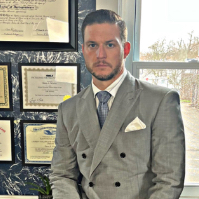Hillsdale County, MI Felony Lawyers
Sponsored Law Firm
-
 x
x

Click For More Info:
-
Law Office of Mark S. Guralnick
55 Madison Avenue 4th Floor Morristown, NJ 07960» view mapCriminal Defense Law Dedicated. Fearless. Successful.
Mark S. Guralnick and his legal team have helped clients throughout the USA and across the world by applying unparalleled dedication and hard work to each case.
800-399-8371
Not enough matches for Hillsdale Felony lawyer.
Below are all Hillsdale lawyers.
Kimberley Burger
Premises Liability, Federal Appellate Practice, Family Law, Personal Injury
Status: In Good Standing Licensed: 16 Years
Stephen Conrad Bappert
Real Estate, Government, Estate, Divorce & Family Law
Status: In Good Standing Licensed: 16 Years
Brendan J. Sanger
Traffic, Social Security, Child Custody, Divorce & Family Law
Status: In Good Standing
John M. Macdonald
Estate, Family Law, Criminal, Credit & Debt
Status: In Good Standing Licensed: 44 Years
James D. Hayne
Accident & Injury, Criminal, Divorce & Family Law, Estate, Lawsuit & Dispute
Status: In Good Standing Licensed: 54 Years
 Mark Guralnick Morristown, NJ
Mark Guralnick Morristown, NJ AboutLaw Office of Mark S. Guralnick
AboutLaw Office of Mark S. Guralnick Practice AreasExpertise
Practice AreasExpertise

